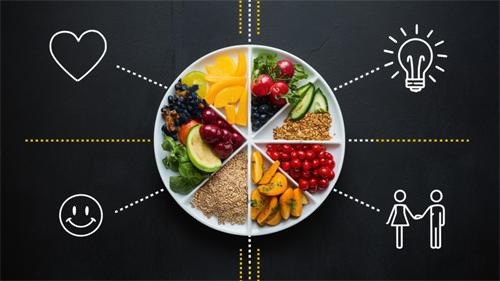2025’s Diet Blueprint for Lasting Healthspan

Nutrient Density & Soil Health: The Foundation for Healthspan
Consumers and producers alike are awakening to the fact that soil health dictates nutrient density—the concentration of vitamins, minerals, and phytonutrients in crops. Industrial farming has depleted soils, leading to micronutrient-poor produce, whereas regenerative agriculture restores organic matter, fosters microbial diversity, and boosts mineral content in plants.
Functional Foods from Rich Soils: Products like teas, juices, and plant-based proteins are now being tested for verified antioxidant and mineral levels, going beyond organic labels to guarantee true nutrient density.
Regenerative Certification: The Regenerative Organic Certification (ROC) offers consumers a reliable seal, ensuring farms meet rigorous standards for soil, animal welfare, and social fairness.
Science-Backed Testing: Advancements in analytic technologies allow brands and researchers to quantify micronutrients and phytochemicals, bridging the gap between farm practices and human health outcomes.
By prioritizing soils that feed the planet, we sow the seeds for healthier bodies and a more resilient global food system.
Personalized Nutrition & Gut Health: Crafting Diets for Mind and Body
The gut–brain axis—the bidirectional communication network between the enteric and central nervous systems—has catapulted gut health into the mainstream of personalized wellness. As research reveals that gut microbes produce neurotransmitters and modulate inflammation, individuals are seeking tailored dietary strategies that optimize their unique microbiome.
Individualized Gut Testing: Services offering genetic, metabolic, and microbiome profiling empower consumers to fine-tune fiber, prebiotic, and probiotic intake to their personal needs.
Diverse, Whole-Food Diets: Emphasizing a spectrum of plant foods fosters microbial diversity, which in turn supports mood, cognition, and immune resilience.
Expert Guidance: Consulting with dietitians, nutritionists, or gastroenterologists ensures evidence-based plans, balancing enthusiasm for novelty with clinical rigor.
As the era of “one-size-fits-all” diets wanes, personalized nutrition anchored in gut health is becoming a cornerstone of sustainable wellness.
Alternative Proteins: A Sustainable Protein Revolution
With animal agriculture accounting for a significant portion of food-related greenhouse-gas emissions, alternative proteins—from plants, fungi, algae, and precision fermentation—are reshaping how we meet protein needs.
Plant-Based Staples: Soy, pea, and lentil proteins, along with texturized vegetable protein (TVP), are now formulated to match meat’s complete amino acid profiles and sensory qualities.
Mycoprotein & Fermentation: Fungi-derived products and air-fed microbial proteins deliver high-quality protein with minimal land and water use.
Cultivated Meats: Cell-culture technologies are advancing toward scalable production of animal-identical proteins, promising environmental and ethical benefits.
By embracing these innovations, consumers can reduce their carbon footprint while supporting muscle health, immune function, and metabolic balance.
The 2025 diet landscape is defined by an integrated approach that aligns regenerative food systems, individualized gut-centric plans, sustainable proteins, toxin reduction, and functional bioactives. Together, these trends form a roadmap to eating not just for longevity, but for vibrant, resilient health.



